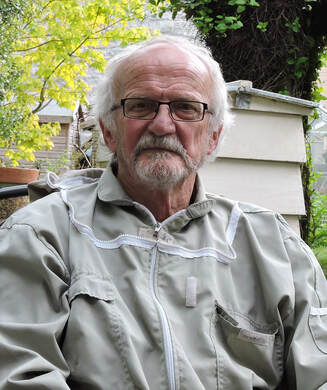 The Chairman of Somerset Beekeepers’ Association, Stewart Gould, is urging beekeepers to keep local honey bees and reject a campaign to overturn the recent ban on bee imports.“Locally bred bees are perfectly adapted for the conditions; imported bees carry the risk of pests and diseases and are genetically better suited to the country of origin,” he said. His comments follow media coverage of the new Brexit rules which have stopped the importation of honey bee colonies directly into the UK from the EU although queen bees are still allowed. HMRC is aware that there may be attempts to get around the import rules by using Northern Ireland as a back door but anti-avoidance measures are in place. “The importation ban is important and avoids the risk of bringing new problems to the UK’s bees. For example, bees in many areas of the country suffer from Chronic Bee Paralysis Virus which is associated with the importation of bees. And we are worried that the small hive beetle, which is in southern Italy, could come into the country and decimate our bees.” Somerset Beekeepers’ Association runs courses to help members to rear their own queen bees from successful colonies which ensures they are adapted to the conditions in their own area. Patrick Murfet from a beekeeping equipment company in Kent has started a petition calling on the government to reverse the new rules. That petition can be found here Petition to overturn the ban In the interest of even handedness, you should be aware that there is a petition to uphold the ban, which can be found here Petition to uphold the banning of bee imports The number of beekeepers and bee colonies continues to rise in the UK; membership of the British Beekeepers’ Association stands at more than 28,000 while Somerset’s is topping a record 1,200. Stewart Gould, Chairman The news this week that Defra has granted a derogation for farmers to use the neonicotinoid thiamethoxam on sugar beet in 2021 has caused uproar amongst many beekeepers and environmentalists.
Somerset BKA Chairman Stewart Gould told the local news: “We know that the intended derogation of neonicotinoid use is for a limited period and is to be used on sugar beet seed, a plant which is harvested before it flowers, and one that doesn’t attract bees, but systemic neonicotinoids, thiomethoxam in this case, are not selective, and are poisonous to all insects, threatening bees and all other pollinators in particular. “ One third of food is dependent on insect pollination and in the UK insects pollinate 70 types of crop – strawberries to cabbages. Dave Goulson – Professor of Biology at the University of Sussex, founder of the Bumblebee Conservation Trust and author of bestselling titles including ‘A Sting in the Tale’ – has responded to the news with a blog. https://www.wcl.org.uk/poisoning-the-environment-to-make-ourselves-ill.asp There is also a debate planned for Tuesday, 19 January https://www.wildlifetrusts.org/events/wild_live_bee-pesticides Asian hornet awareness week is an excellent reminder to look out for the non native and highly destructive hornets when in the garden and out and about: check flowers, ivy, in wasp traps and fallen fruits.
At this time of year Asian Hornet nests are growing bigger and there are many hungry mouths to feed. This means that if we have any Asian Hornets in the UK, they will be out and about collecting food, and are more visible. They can be spotted feeding on flowers, on the ivy once it is out, and also on fallen fruit. They can also be spotted near beehives, where they will try and catch honey bees as they return to the hive full of nectar. Asian Hornets look like a big wasp, but are mainly black with orangey yellow faces, and a broad orangey yellow band across the base of the abdomen. The bottom part of the legs is yellow. If you spot what you think is an Asian Hornet please Take A Photo, then report it through the FREE AsianHornetWatch app. If it is an Asian Hornet then someone will come to check it out for you. If you are not sure what it is, Take A Photo anyway. You can compare the photos on the app with what you have seen. If you need help with this contact your local Asian Hornet Team https://www.bbka.org.uk/asian-hornet-action-team-map. For Somerset contact [email protected] South West Asian hornet action teams are launching an Asian Hornet Spring Watch publicity campaign over Easter. They are calling on the public to get involved.
Somerset’s AHAT coordinator Lynne Ingram said: “Lockdown means that people will be spending more time in their gardens and on walks around their neighbourhood this Easter. “We would like people to look for Asian hornets on flowers such as camellias, trees that ooze sap and in sheltered spots like sheds and porches while keeping within government guidelines in relation to Covid-19.” Asian hornets have distinctive orange faces and yellow tipped legs and are smaller than the bright yellow striped European hornet. “If anyone sees an insect they think is an Asian hornet, check it out on the Asian Hornet Watch app which has an identification guide and lets you send in your sightings.” Beekeepers and conservationists hope to mobilise support from all over the region to prevent the destructive insects getting established in the UK where they will decimate populations of pollinating insects and honeybees. “Given the many pressures on our precious pollinators, including climate change, habitat destruction and pesticide use, it’s vital we do all we can to support them by reporting sightings.” Somerset Beekeepers’ Association has many useful ID materials on its website including a children’s colouring-in sheet. https://www.somersetbeekeepers.org.uk/resources.html Asian hornets are a notifiable invasive species and should be reported immediately, preferably with a photo using:
Ends Notes to editors: Asian hornets (Vespa velutina nigrithorax) are slightly smaller than native European hornets and look like large black wasps with an orange face and yellow legs:
A single Asian hornet can kill 50 bees a day, with a nest containing up to 6,000 workers and up to 350 queens. In Jersey, France and large areas of Western Europe they are stripping the environment bare of insects before moving on to prey on managed honeybee colonies. Asian hornets are a notifiable invasive species and should be reported immediately with photo using:
Somerset BKA's Asian hornet action team co-ordinator Lynne Ingram is urging us all to start monitoring for Asian hornets:
"We're approaching the time when Asian hornet queens will be emerging from hibernation – when the temperature is consistently reaching 13 deg C – and so we need to be monitoring for their presence. We don’t know if there are any Asian hornet queens over-wintering in the UK this year, or whether any mated queens will make their way into the UK post-hibernation. But we need to be prepared. Monitoring traps We strongly recommend the use of monitoring stations, rather than killing traps. This allows us to get the evidence of Asian hornets that we need, without killing our native beneficial insects, in particular European hornets. Asian hornet queens will be searching for sugary foods to build up their energy, not preying on your bees. This means that all monitoring stations need to be positioned where you cannot help but see them and where you can easily check them daily - e.g. outside the kitchen window, or in a sunny spot in your garden. All beneficial insects must be released from monitoring stations daily. From mid-May Asian hornet queens will be mainly in their nests and so monitoring stations can be removed. We are recommending the adaptation of Thorne's traps to include the wick stations inside. This allows wasps and small flies to escape. (See photos above). Liquid bait Use Suterra (now sold as Trappit wasp attractant). Get this from your AHAT Team leader if restrictions allow (keep yourself and others safe and comply with government guidelines) or buy online (Pestfix.co.uk sells smaller bottles). If you cannot get it due to current restrictions try one of these French recipes: • Dark beer mixed with 25ml strawberry dessert sauce and 25ml orange liqueur • 350ml sweet white wine (or white wine sweetened with sugar) + 20-30ml mint syrup Please also observe any flowers where Asian hornet queens may be feeding. Any trees that may be oozing sap are also very attractive to queens in Spring. Being confined to our homes at the moment gives us the ideal opportunity to spend time monitoring for Asian hornets. Summer From the August onwards, Asian hornet workers may be found preying on your bees, so monitoring stations may also be hung in your apiaries. Again, we need to be monitoring regularly so that we protect our beneficial insects, and so that we have live samples that could be tracked if necessary. Please register your monitoring stations in apiaries on BeeBase. What to use • Monitoring stations as above • Open bait stations – plastic tray with screwed up kitchen roll, a stone and your liquid bait. Ideally protect these from rain - on a bird table Autumn In the Autumn Asian hornet workers can be observed on fallen and growing fruit and on ivy plants, where they will often be seen taking prey. Males and new queens will be produced in the late Autumn and males can be seen feeding on flowers. This is a crucial time to spot Asian Hornets as it is important to find any nests before the queens emerge and go into hibernation. Observe plants, fruit and also around your apiary. If you think you have seen an Asian Hornet: • Get a photo (or sample) • If you are not sure or are struggling to get evidence contact your local Asian Hornet Action Team – [email protected] • If you are sure and you have evidence, then report on the Asian Hornet Watch App or on [email protected] – and to your local AHAT. Due to current restrictions please make sure that you keep yourself safe and comply with government guidelines. Check BBKA website for updates on how this relates to beekeepers." Congratulations to Mark and Christine Gullick from Burnham Division who were awarded the Bronze Bee for winning the most points at Bristol’s Bee and Pollination Festival on Saturday.
They beat extremely tough competition to scoop seven firsts, five seconds, three thirds and one highly commended. Next stop: the National Honey Show! Somerset Beekeepers will be out in force at the Royal Bath & West Show starting tomorrow (Wednesday) at Shepton Mallet.
Our preparations in the Bees & Honey marquee are well underway - don't be put off by this photo which was taken on Sunday! What promises to be an attention-grabbing stand will demonstrate the invaluable role honeybees play in the pollination of the nation’s best-loved food crops. Plus there will be our usual team of experienced beekeepers on hand to talk about the craft to visitors. The feature is run by three counties - Somerset, Avon and Wiltshire - and includes a honey show, candle rolling for children, free honey tasting and advice about all aspects of beekeeping. Plus visitors will have plenty of opportunity to see honeybees at work in observation hives, where bees are behind glass, and in the outdoor bee garden where beekeepers will demonstrate behind protective netting. If you're at the Show, do come and hello! Love Somerset – the online site celebrating Somerset’s people, places and products – is kindly supporting Somerset Beekeepers’ Association.
They’re donating 20 per cent of the sale price from a charming range of wildflower seed cards designed by Hannah Marchant of Long Sutton. Each design has been printed onto paper embedded with wildflower seeds which will bloom when planted. Check them out here! SW Regional Bee Inspector Simon Jones writes about the last season in his annual report - the good, the bad and the ugly! It provides a fascinating snap-shot of what has happened in Somerset and the region. There is some good news for our county beekeepers - the number of colonies affected by EFB fell last year to 26, but that is still more than Devon, Cornwall and Avon put together. However AFB was not reported in Somerset but it is just over the county border in Devon. "The 2018 season started late after a cold winter and spring. However colonies that were healthy and strong coming out of the winter were able to take advantage of the good weather that followed and gathered a good crop of honey. From my own experience the honey has been of a good quality with most of the combs fully capped with the extracted honey having a low moisture content. The Bee Inspectors have had another busy season. They have been carrying out their usual programme of risk based inspections for European Foulbrood (EFB) and American Foulbrood (AFB). There has been an increase in the levels of disease in Cornwall but the other counties which make up the South West Region (SW) have showed a significant decrease with Avon having no disease at all (see graphs further in the report). In partnership with the local Beekeeping Associations we have continued to deliver our ‘Bee Health Days’. This season the North Somerset/Avon Bee Health Day took place at the Langford Veterinary College, the Cornwall Bee Health Day was in Lostwithiel at the local community centre and the Devon Bee Health Day was hosted by Exeter Branch at the Kenn Centre just outside of Exeter. I would like to thank all of the local association secretaries/training officers who helped us to manage the programme of Bee Health Days across the SW. We are also very grateful to the local beekeepers who allowed us to use their nearby apiaries for demonstration purposes. The Inspectors also had a presence at the Somerset Lecture Day in February and Cornwall’s ‘Bit of a Do’ (BOAD) in September. We have again been carrying out Exotic Pest Surveillance (EPS) inspections around risk points such as ports and airports to check for incursions of Small Hive Beetle (SHB), Tropilaelaps and Asian Hornet. With local beekeepers help we set up four Enhanced Sentinel Apiaries, two are situated near Avonmouth Docks and two near Plymouth Docks, both are considered to be very high risk points. These apiaries are inspected three times a year by the local BeeInspector and floor samples are sent into the FERA laboratory for analysis. In addition to these inspections there are 18 Sentinel Apiaries around the region. This is where beekeepers that have an apiary near a risk point assist the National Bee Unit (NBU) by regularly monitoring their colonies for Exotic Pests and twice a year they send in floor debris samples to be tested. I am very grateful to the South West Sentinel Apiary Beekeepers for all of their help this season, they are an important part of the NBU’s surveillance programme. Part of our work each season is to monitor imports of queens and package bees from the European Union (EU) and Third Countries (Argentina, Australia and New Zealand). Again this year we saw a large number of packages imported from Italy, some of which were bought by beekeepers in the South West (SW) region. These were inspected for SHB as they were decanted into hives and fortunately nothing was found (SHB was found in Southern Italy in 2014). Throughout the season the SW Inspectors carried out enhanced surveillance for Asian Hornet in the Woolacombe area of North Devon to ensure nothing had been overlooked from the nest that we found and destroyed in 2017. We were also in the thick of it again when Asian Hornet was found to be predating bees in an apiary in Cornwall." For more a detailed report, please download the file below.
All members of SBKA are to be given an Asian hornet trap and the attractant Suterra.
We anticipate starting to distribute the Veto Pharma traps at Lecture Day on February 16 in good time before any over-wintering queens start to emerge. The remainder of the traps and the attractant will be available for members to collect from their Divisions. We are determined to stop Asian hornets becoming established in the county and to that end AHATs (Asian Hornet Action Teams) have been set up, publicity materials produced and a PR-campaign started. Last November Council set a £6,000 budget for our 2019 Asian hornet campaign and we subsequently received a £3,600 donation from Yeo Valley which Council decided to allocate to this work. The costs of providing the traps and attractant will be £4,200; £3,400 being the cost of the traps supplied by Thornes at a slight discount and £800 for Suterra bought in bulk. Members will receive Asian hornet fliers and identification cards, plus an EFB leaflet, with their 2019 year books. Pick up your year book at Lecture Day; the remainder will be posted. As soon as day time temperatures reach 10-12 degrees C, any over-wintering queens will emerge. Time for super-vigilance to start! |
Archives
March 2024
Categories
All
|
||||||
Somerset Beekeepers Association Charity © 2021 Registered CIO Charity 1206483
Affiliated to the British Beekeepers Association
Click here to view our Privacy Policy
Affiliated to the British Beekeepers Association
Click here to view our Privacy Policy
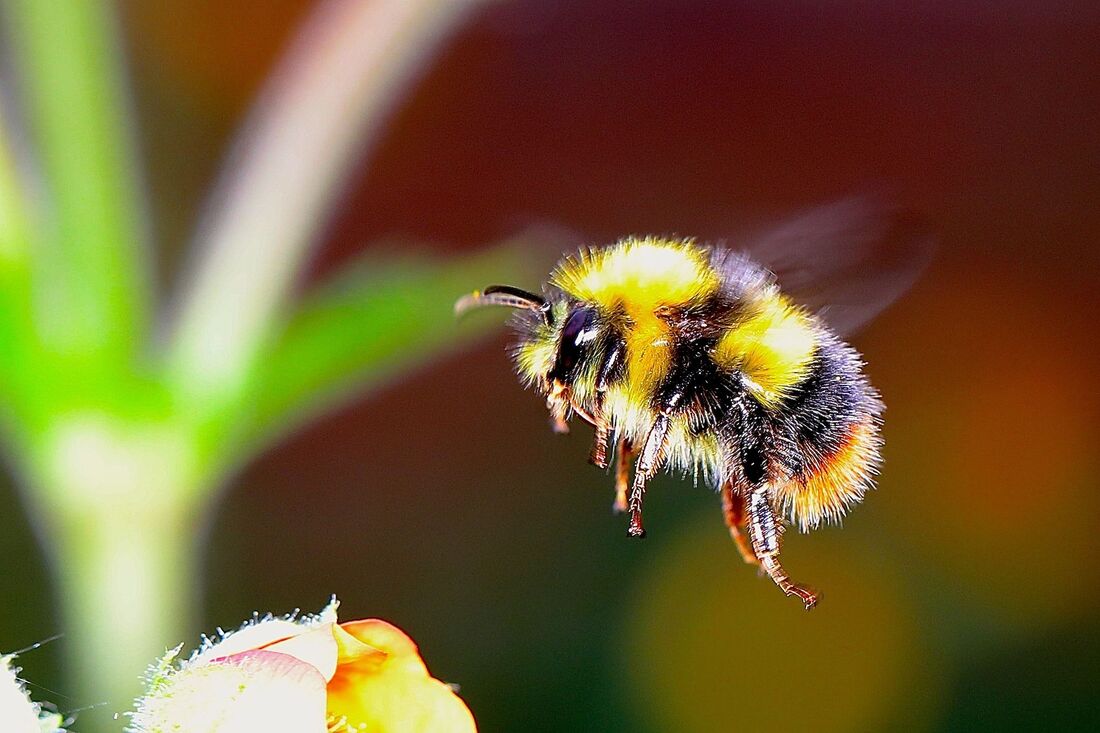
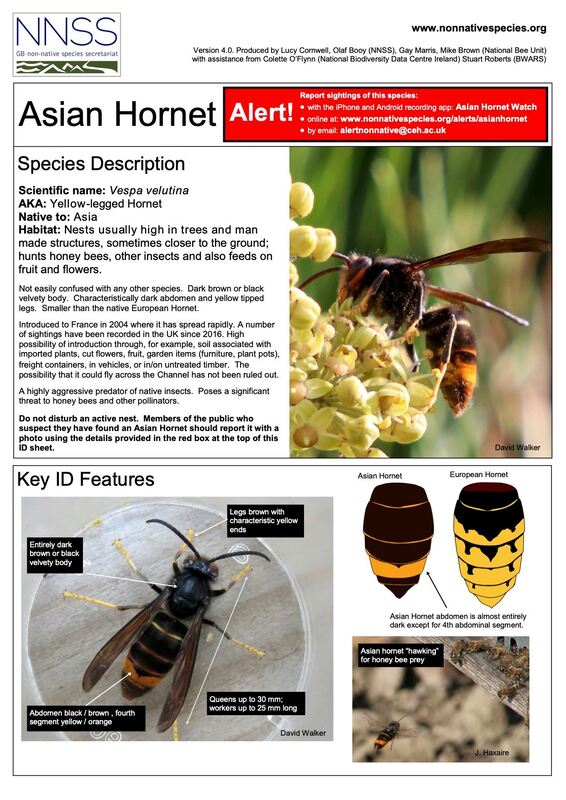
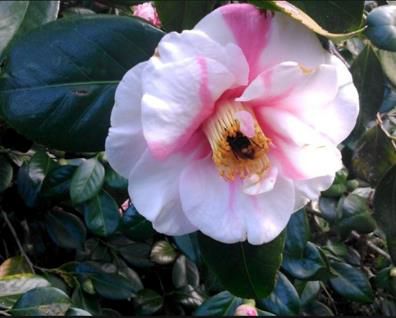

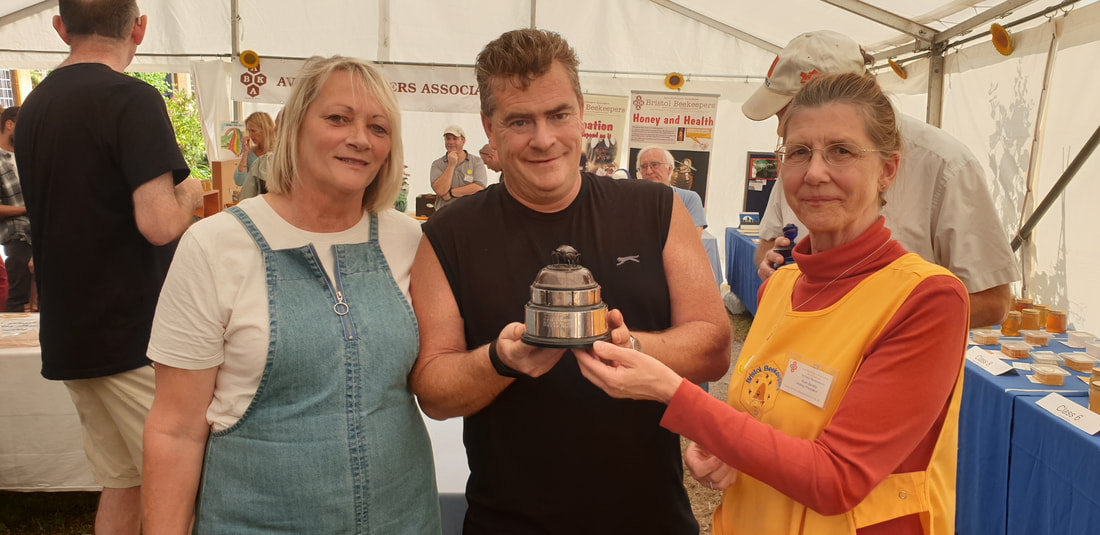
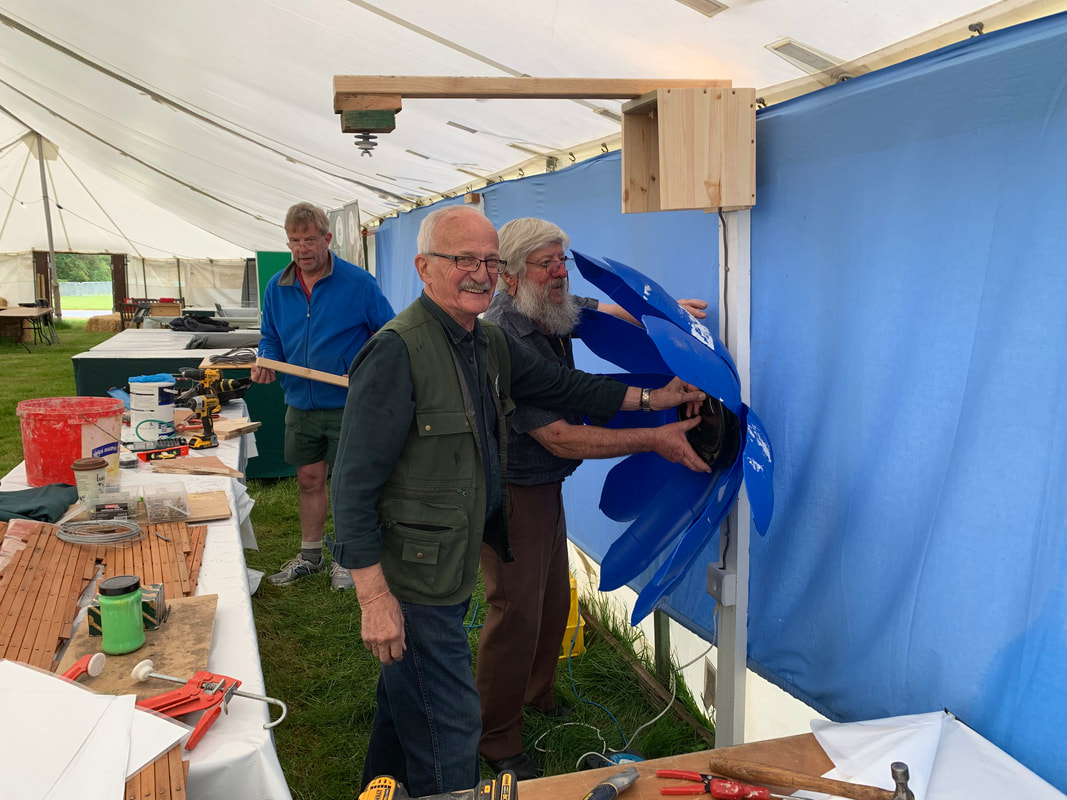
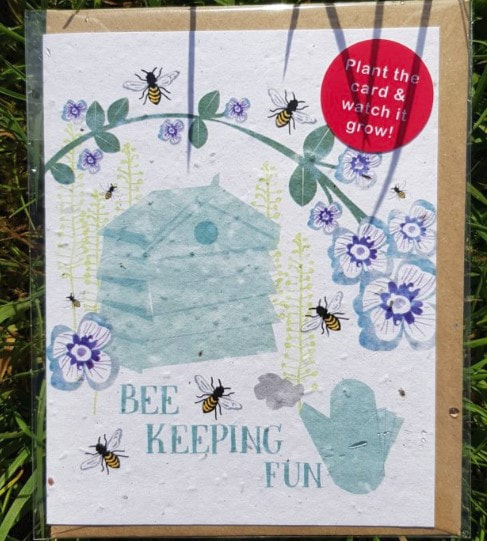
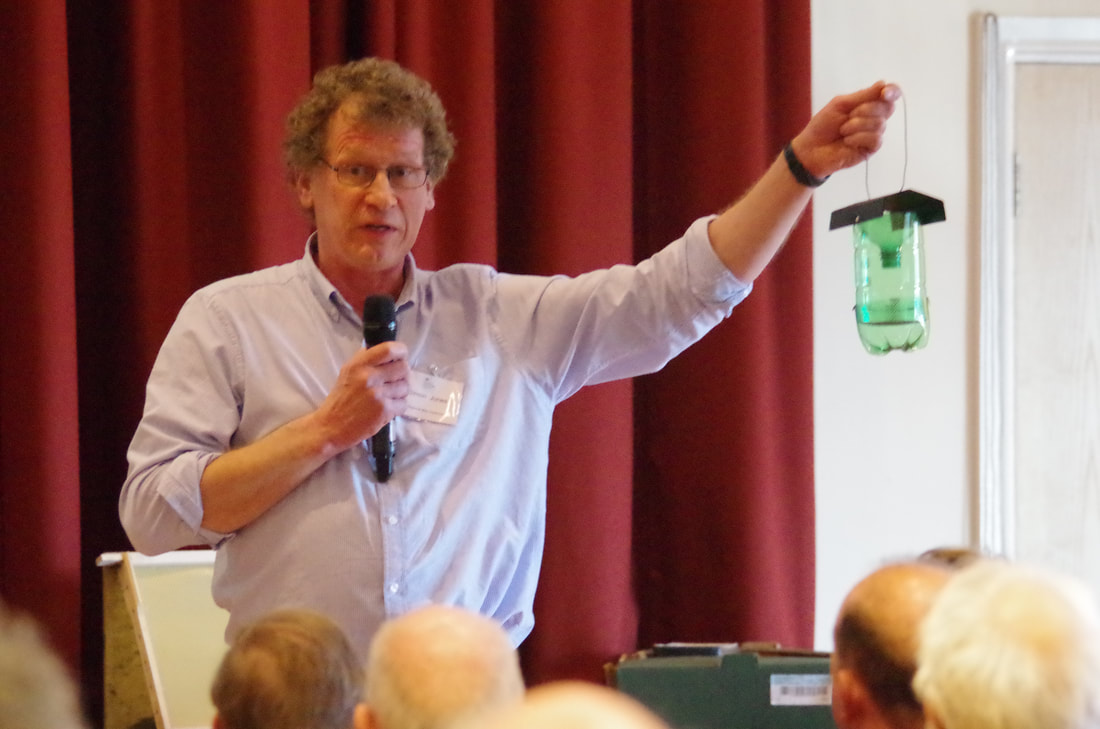
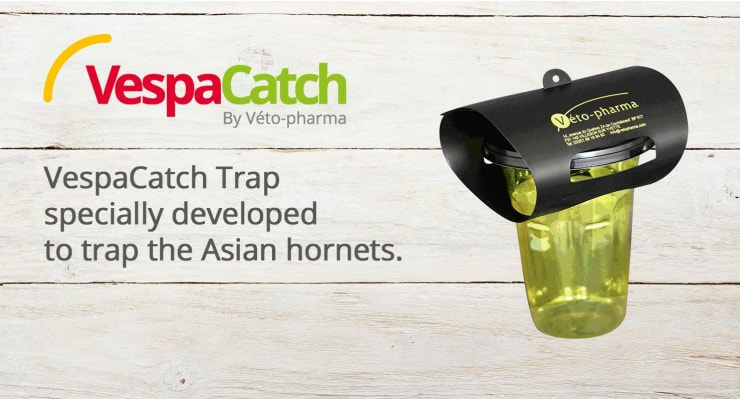
 RSS Feed
RSS Feed
